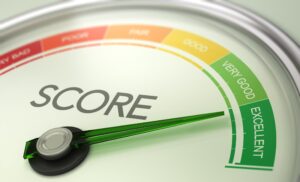If you’re ready to purchase your first home, but you’re worried your student loan debt may be holding you back, we’re here to help! Although it’s true that having too much debt will affect your interest rate and whether you can qualify for a mortgage, in most cases you can still consider buying a home if you’re ready to.
Debt-to-Income Ratio

You can do this yourself before applying if you feel your monthly student loan payments may cause your debt-to-income ratio to be too high. For example, let’s say you pay $350 a month for your student loans, $500 for your car loans, and you’re looking at a house that would have a monthly mortgage payment of $1400. Your total monthly payments would total $2,250. If your gross monthly income is $5,000, then your debt-to-income ratio would be roughly 45%.
Your debt-to-income ratio should be under 36%, with no more than 28% of that going towards your monthly mortgage payments. This is one way to determine if your student loans could prohibit you from qualifying for a home loan.
Credit Score

Lenders will look at your credit score to determine how much they can trust you to make monthly mortgage payments on time. Along with this, if you have a higher credit score, you’ll typically qualify for lower interest rates. Be sure to take a look at your credit score before you apply for a mortgage, so you can have an idea of what your lender will be dealing with. Typically, a good credit score would be anywhere from 670-739.
FHA Loans

Overall, having student loans will not keep you from qualifying for a home loan. It depends on your total debt-to-income ratio, and credit score. If you have any questions, or want to see if you’re eligible for an FHA loan, contact Team Crescenzo today!









